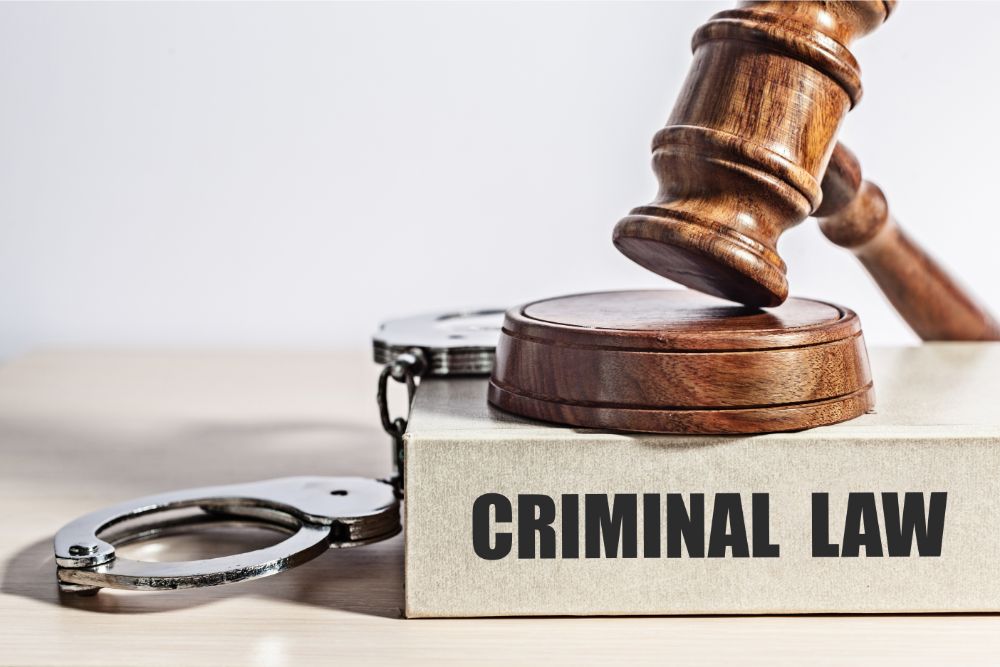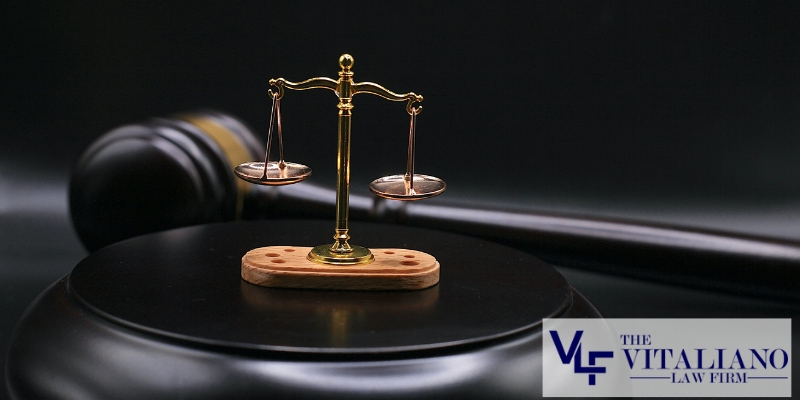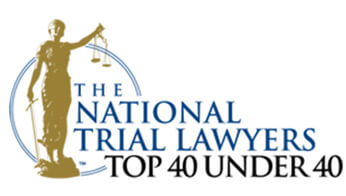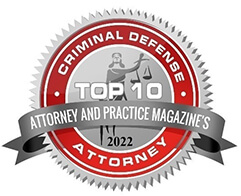Long Island Criminal Lawyer

Long Island Criminal Defense Attorney
An arrest as the result of a criminal charge can be life-altering. Navigating the legal system is its own challenge and can be overwhelming, regardless of whether you have broken the law or find yourself accused of a crime you did not commit.
Regardless of circumstances, every American citizen is granted certain rights when they have been arrested on criminal charges. Understanding these rights and knowing how they impact your journey through the legal system is essential to success in a criminal case. The Vitaliano Law Firm has the experience and expertise to assist you through the process.
Process for a Criminal Case
The justice system follows a strict progression of events for criminal cases, but if you are not familiar with the legal system, it can be confusing. A brief overview of the process of completing a criminal case is as follows:
- Arrest or ticketing. This first step is the formal accusation of the commission of a crime or crimes. It either involves an arrest or a desk appearance ticket (DAT) and is based on evidence and statements gathered.
- Booking. Within 24 hours of arrest, the defendant is taken in to be booked before their arraignment. While the individual is being held, the district attorney is contacted, and an official complaint is filed in criminal court.
- Interview. Before any sort of trial or court appearance, the defendant is required to participate in an interview typically conducted by the district attorney’s office. This interview is a way for the DA to gather information about the case.
- Arraignment. The arraignment is the defendant’s first court appearance. During this appearance, the defendant is informed of the charges. Bail is also set, and the defendant may be able to be released from custody if they post bail.
Once these steps have all been completed, the defendant’s criminal defense lawyer continues working to secure the best outcome. Depending on the circumstances, a criminal case either concludes with a dismissal of charges, a plea, or a trial.
Practice Areas
There is no one size fits all approach to criminal defense, so it is important to find a Long Island criminal defense lawyer who has the appropriate experience. The Vitaliano Law Firm offers seven practice areas to best serve our clients.
White Collar Crime Defense
White collar crimes tend to be non-violent, but they can still carry severe penalties. If an individual is convicted of a white collar crime, they may face jail time, seizure and forfeiture of assets, or the loss of licensure in a certain field.
White collar crime also covers a variety of infractions. Some examples of white collar crime may include wage theft, money laundering, Ponzi or pyramid schemes, and forgery. The nature of the crime often influences the severity and type of punishment handed down by the courts.
Driving While Intoxicated/Driving Under the Influence Defense
The act of driving while intoxicated or driving under the influence is extremely dangerous and illegal in New York state. It can cause significant physical, emotional, and financial damage to the driver and others. Though circumstances and intoxicants may differ, these cases all fall under the umbrella of DWI cases in New York.
There are several classifications of DWI in New York state. These classifications range from raised blood alcohol content to any impairment of ability. If an individual is convicted of any DWI charge, they may face fines, having their license revoked, or incarceration.

Health Care Fraud Defense
Fraud within the healthcare field is serious and can be committed intentionally, for selfish personal gain, or unintentionally as the result of poor record keeping. These types of fraud cases often occur against the government, New York state, an insurance company, or an individual provider. There are several ways that healthcare fraud can happen.
Intentional healthcare fraud occurs when an individual or organization knowingly misuses resources for personal gain. This might include the illegal sale of prescription drugs or the creation of a false healthcare organization to receive more funding from government agencies.
Unintentional healthcare fraud often is not fueled by selfishness, but the penalties are just as serious. These cases often deal with billing for services and could be the result of over billing, billing more than once, or filing billing improperly.
Racketeering Defense
The Racketeer Influenced and Corrupt Organizations (RICO) Act was created in the 1970s to slow down organized crime in the United States. Racketeering law can be difficult to understand because it covers a wide range of offenses. Some examples of racketeering charges are kidnapping for ransom schemes, money laundering, illegal gambling, extortion, and drug or human trafficking operations.
These cases are particularly difficult because, in many instances, all involved parties are given the same charges regardless of their immediate involvement in the crime. In a RICO case, a criminal defense attorney works to prove that their client was not involved with any criminal operation in a significant way. This could include proving a lack of connection with a criminal organization or a case of mistaken identity.
Bribery Defense
Accepting a bribe or offering a bribe to someone else can carry significant consequences. If you are charged with accepting or attempting to offer a bribe, you may face thousands of dollars in fines, months or years in jail, or multiple years of probation. Bribery cases also often include other charges that make the penalties more severe.
While a criminal charge of bribery is bad under any circumstance, these cases carry much harsher penalties for people who hold public offices. Attempting to bribe a public official, or accepting a bribe as a public official, can be charged as a class B, C, or D felony. Those in public offices who are convicted of offering or accepting a bribe can lose their position and any other professional licensure they had.
Tax Fraud Defense
Tax fraud cases can take place at the state or federal level and involve both individuals and corporations. There are several ways that an individual or company can be involved in tax fraud. Some of these instances include tax evasion, conspiracy, and falsification of documents. The process of dealing with a tax fraud case is often long, involved, and stressful.
The outcome of these cases can severely impact both an individual’s personal and professional life. There are, however, circumstances when an individual does not realize that they are involved with tax fraud. In such cases, it is important to work with an experienced criminal defense attorney to ensure a fair outcome.

Drug Crime Defense
The most significant drug-related cases deal with high-level narcotics. The state of New York relies on a system developed by the United States Drug Enforcement Agency (DEA) to classify and charge drug-related cases. Various drugs are assigned a particular schedule depending on several factors.
The penalty resulting from a drug-related crime depends on the schedule of the drug involved. An experienced criminal defense attorney works to develop a strong defense using arguments such as a violation of due process or mistaken identity.
Criminal Defense Lawyer FAQs
What Does a Criminal Lawyer Do for Their Clients?
Criminal defense lawyers assist their clients as they navigate the court system and represent their clients in various court appearances. They will evaluate the facts of each client’s case, determine potential outcomes of the case, and then work to negotiate the best possible deal for their client. Criminal defense attorneys also make sure their clients are aware of how their case is progressing and what the final outcome may be.
Do Criminal Lawyers Go to Court?
Criminal defense lawyers have a wide variety of duties, and appearing in court is one of the main ones. One of the primary responsibilities of a criminal defense lawyer is to represent their client during court appearances. These appearances may include arraignments, hearings, and the trial if necessary. In addition to representing their clients in court appearances, criminal defense lawyers are also responsible for other interactions in court, such as the examination of witnesses.
How Do You Find a Good Criminal Lawyer in Long Island, NY?
Finding a criminal defense attorney that can best serve your needs is essential for success in a criminal case. To find a good criminal defense lawyer, there are a few things to look out for. Two major things to seek out are an attorney that specializes specifically in criminal defense and who is familiar with the area where you have been charged. This ensures they are well prepared to handle your case.
What Questions Should You Ask a Criminal Attorney Before You Hire Them?
Making sure you are working with the best criminal defense attorney can make a significant difference in the outcome of your case. There are several things you should consider and discuss with an attorney before you work with them. Some things to ask are where they received their education, how long they have practiced law in the area, and their trial success rate. It may also be beneficial to ask for reviews or comments from previous clients.
Discuss Your Case With Experienced Long Island Criminal Attorneys
Navigating the New York court system and facing criminal charges can be overwhelming. Working with an experienced, knowledgeable criminal defense lawyer can give you the peace of mind and confidence you need. The Vitaliano Law Firm has the experience and local knowledge to help you successfully navigate your criminal case. Contact us today.
Testimonials






